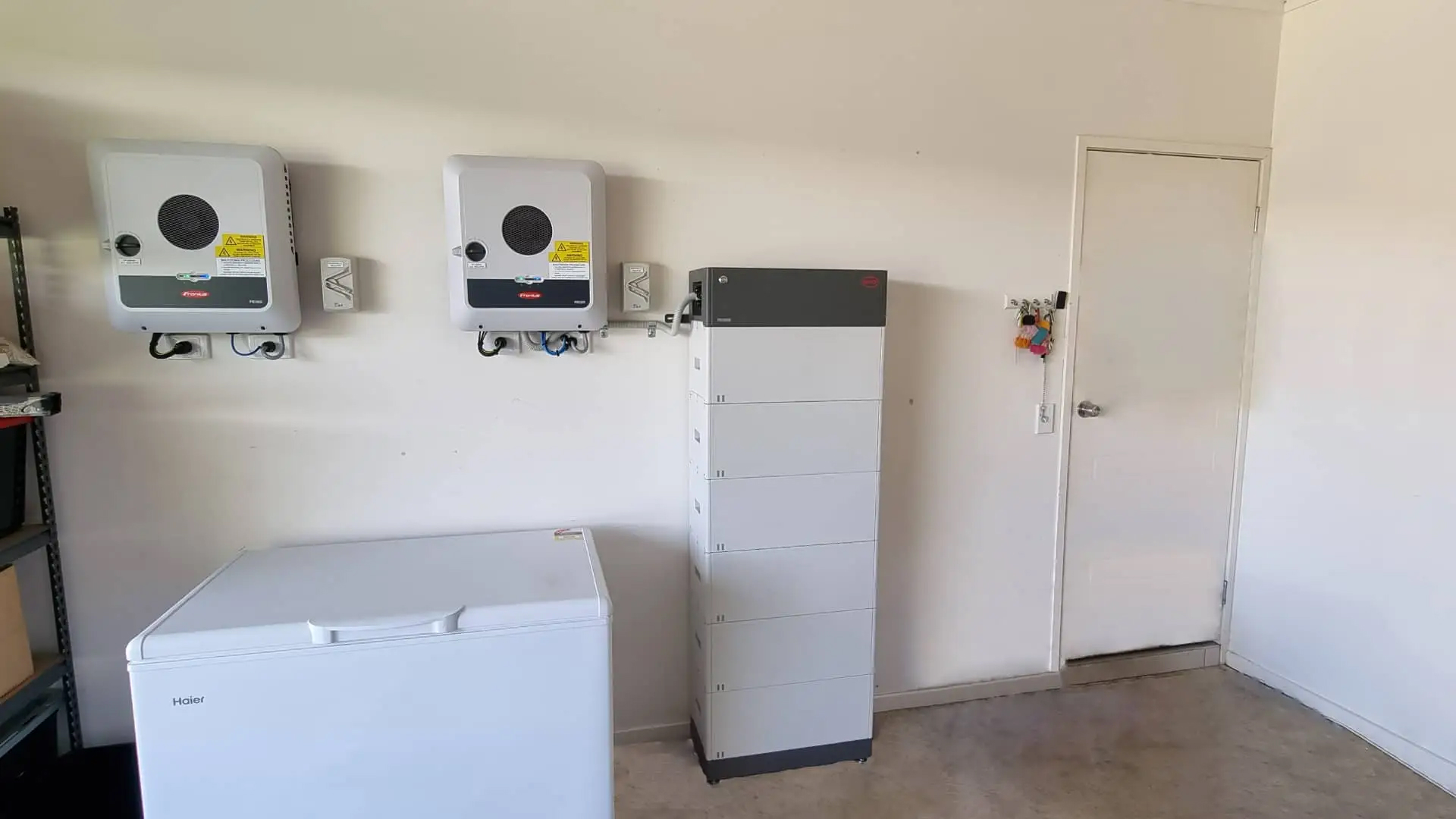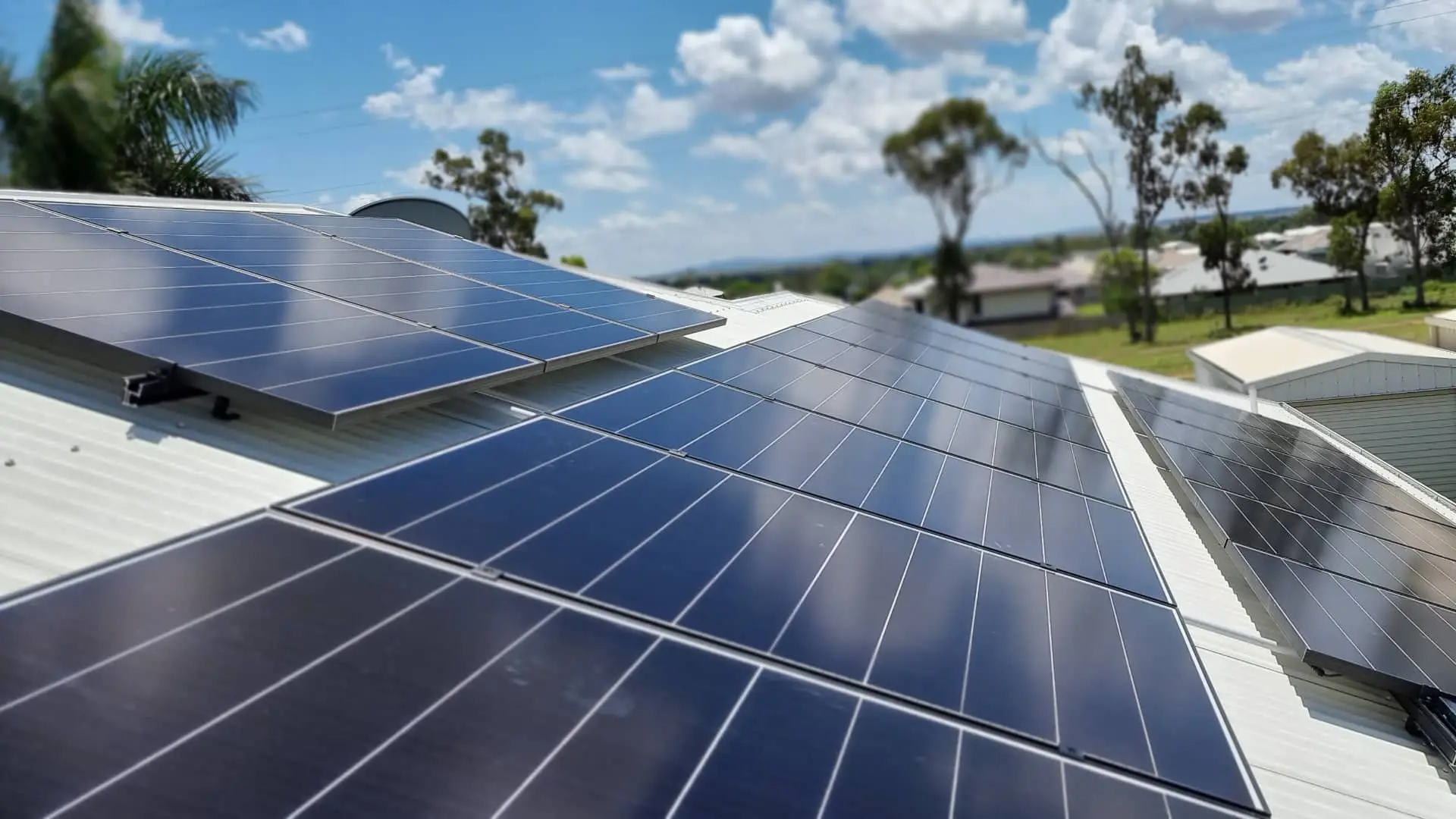Solar panels are often touted as a sustainable solution for reducing household energy costs. However, some homeowners find themselves puzzled when their expected savings don’t materialise. So if you’re here wondering, “Why are my solar panels not saving me money?” you are not alone.
In this comprehensive guide, we’ll explore common reasons why your solar investment might not be paying off as anticipated and how you can enhance your savings.
But First, Let’s Break Down Solar Panel Efficiency
Before delving into the factors affecting your solar savings, it’s crucial that you can grasp how efficient your solar panels are in converting sunlight into electricity.
Solar panel efficiency is a measure of a panel’s ability to convert sunlight into usable energy. The average efficiency of solar panels on the market today ranges from 15% to 20%, but this can be influenced by several factors including panel type, installation angle, and exposure to sunlight.
We’ll break this down more for your understanding below.
Factors Limiting Your Solar Savings
Several key factors can explain why your solar panels might not be saving you as much money as you expected:
1. Insufficient System Size
How many solar panels do I need? This is a vital question you should ask before installation. The number of panels and the overall capacity of your solar system must align with your energy consumption needs. If your system is too small, it won’t generate enough power to significantly offset your electricity bills.
2. Installation and Environmental Issues
The orientation and angle of your solar panels significantly affect their productivity. Panels should ideally be installed where they can receive maximum sunlight, free from shade. Environmental factors like cloudy weather or shorter daylight hours in winter can also reduce the amount of solar energy your panels can harness.
3. Energy Consumption Habits
Your household’s energy consumption pattern is another critical element. If most of your electricity use occurs at night or during overcast conditions when your panels are least productive, you’ll miss out on the benefits of solar power, leading to higher grid consumption.
4. Grid Fees and Metering Policies
Understanding your electric bill structure and the policies of your energy provider is essential. Some utilities may charge higher fees or offer less favourable conditions for solar energy systems, which can affect your savings.
Enhancing Your Solar Panel Efficiency
Here we’ll give you some advice on some strategies you can take to maximise what you get out of your solar panels.
1. Optimise Energy Usage
Align your energy usage with peak solar production times. You can use timers for appliances like dishwashers, washing machines, and pool pumps to operate during the day. This alignment ensures you use the energy as it’s produced, reducing reliance on the grid.
2. Upgrade to Energy-Efficient Appliances
Investing in energy-efficient appliances can reduce your overall energy consumption. Appliances with a high energy star rating will use less power, allowing your solar system to cover a larger portion of your energy needs.
3. Regular Maintenance
Ensure your solar panels are regularly cleaned and free from obstructions like fallen leaves or bird droppings. Regular maintenance checks for damage or inefficiencies are also crucial for keeping your system running optimally. Learn more about solar panel maintenance and inspection services.
4. Consider a Solar Battery
Adding a solar battery can store excess power generated during the day for use at night, further decreasing your reliance on the grid. This can be particularly beneficial if your energy consumption is higher during non-solar production hours.
How Much Do Solar Panels Cost?
Maybe you’re here because you’re curious what problems you may run into while trying to save with solar panels, instead of troubleshooting a problem with a current installation. In that case, if you’re getting ready to consider solar panels, you’re probably curious how much do solar panels cost?
The upfront cost of purchasing and installing solar panels can be quite significant. In Australia, prices can vary widely depending on the size of your system, the quality of panels, and the complexity of your installation. This initial cost is a critical factor in calculating the payback period of your solar setup and whether it’s worth it for you.
However as a Queensland resident or business you also have some support, as the State Government wants to encourage more investment into green power.
Read more: A Roundup of How the Australian Government Supports Residential Solar
Final Thoughts on Solar Efficiency
While solar panels offer a promising way to reduce energy costs, various factors can impact the actual savings realised. By understanding these factors and actively managing your energy usage and system maintenance, you can enhance the efficiency of your solar panels and see a more significant reduction in your electricity bills.
In conclusion, solar panels can indeed save you money, but achieving optimal savings requires a combination of smart planning, efficient energy use, and regular system maintenance. Addressing these aspects will help you maximise your investment and enjoy the financial and environmental benefits of solar power. For further assistance or to get a quote, don’t hesitate to contact us at Snap Solar on 1300 628 097, or explore our services for both residential and commercial solar solutions.
Get Your FREE Quote Today & Save $$$!
Contact our team today and we'll get back to you as soon as possible to discuss your solar needs!
Get a FREE QuoteRelated Articles.

How Do I Pick the Right Solar Battery for My Home?

Jackson Wyer

Are Solar Batteries Worth it?

Jackson Wyer

Do Solar Panels Work on Cloudy Days?

Jackson Wyer

